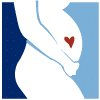
16 Nov Don’t Let Urinary Incontinence Dampen Your Holiday Spirit
Sometimes, the old sayings really are the best: we’re entering the most wonderful time of the year here in Alabama. It’s a time when we gather our families, friends, and loved ones of all stripes, feed each other well, and focus on the things that truly matter in life. But in the midst of all the mirth and merriment, health issues are often the first thing to dampen our spirits. That’s especially true for conditions we may feel embarrassed about, like urinary incontinence.
This time of year can put an extra strain on our bladders as we laugh, drink our fair share of eggnog, and rock around the Christmas tree. But, contrary to what many of our patients believe, bladder leakage is not a normal part of getting older. There are ways that you can take back control and enjoy the holidays leak- and worry-free.
Is Urinary Incontinence a Normal Part of Aging?
Despite the fact that bladder leakage is more common in women going through menopause, the condition is not, in fact inevitable. It is a medical condition, and just like any other, you should talk about it with your doctor. Incontinence often has underlying causes that we can treat—but we can’t treat them unless you bring the issue to our attention.
Bladder leakage can be caused by:
- Weakened pelvic floor muscles, especially during pregnancy and after childbirth
- Hormonal changes
- Constipation
- UTIs and vaginal infections
- Obesity
- Neuromuscular conditions
- Alcohol & caffeine consumption
- Certain medications
What Are the Different Kinds of Incontinence?
As the diverse list of incontinence causes above may suggest, there’s actually more to bladder leakage than many people think. Each type of incontinence involves a different physical process and therefore requires a different treatment approach. The three most common types of urinary incontinence are stress incontinence, urge incontinence, and mixed incontinence.
Stress Incontinence
This form of incontinence is related to physical stress on the bladder. You’ll probably notice leakage when you sneeze, cough, laugh, or exercise. Usually, this condition stems from a weakened pelvic floor or abdominal muscles, both of which help regulate and balance your bladder and play a major part in controlling leaks.
We usually see stress incontinence in women who are pregnant, who have had vaginal childbirth, or who are over the age of 50.
Urge Incontinence (Overactive Bladder)
This form of bladder leakage is a sudden, intense urge to urinate followed by a contraction of the bladder muscle that may be uncontrollable. Sometimes it can begin as a normal need to go but quickly becomes more desperate, and can easily lead to accidents. Rather than being a failure of the person to find a bathroom quickly enough, it’s a failure of their bladder muscles to function properly.
Women with this form of incontinence may feel like they’re trapped in a cycle of bathroom visits, poor sleep schedules due to frequent nighttime urination, anxiety about leakage, or embarrassment about accidents and near misses.
Mixed Incontinence
For some women, incontinence is a matter of both physical stress and frequent urges to go. We call this mixed incontinence, and it occurs more commonly as women age. With this condition, you involuntarily urinate when you burst out laughing, have a sudden coughing fit, or even while you sleep. But you also experience leaks that follow sudden, intense urges to go.
Diagnosing Incontinence
Incontinence can take a major emotional toll on women of all ages, whether due to anxiety, embarrassment, disrupted sleep, or trouble with intimacy. That’s why it’s so important to talk to your OB-GYN about bladder leakage. Don’t let embarrassment keep you from getting the help you deserve!
At Sylacauga OB-GYN, we can help you determine the root cause of your bladder problems with various tests, including pelvic exams and cough tests. During a pelvic exam, your OB-GYN will check for pelvic floor disorders, such as pelvic organ prolapse, as well as any anatomical abnormalities. During a cough test, we’ll fill your bladder with sterile water, then ask you to stand and cough to check for any stress leakage.
Bladder Leakage Treatments
Depending on what we discover during the diagnostic exams, we will put together a plan to address your specific issues. Treatment plans may include:
- Lifestyle adjustments, such as managing your fluid intake and making dietary changes
- Bladder training, a type of behavioral therapy that involves fixed intervals of urination and urge suppression techniques
- Physical therapy exercises for your pelvic floor muscles, including Kegel exercises
- Medications for overactive bladder
- Surgical procedures such as slings or bladder suspension
- Minimally invasive treatments such as peripheral nerve stimulation or Botox injections
The ultimate choice will depend both on the precise cause of your incontinence as well as your medical history and your preferences. If there’s an ideal treatment out there that we don’t provide here at our office, we’ll provide a referral to one of our expert partners in the area.
Enjoy the Holidays to the Fullest
Urinary incontinence is a very real problem that millions of women deal with, young and old. But it’s one that we can treat safely, effectively, and in a way that feels most comfortable to you. Make this year the year you decide to take back control and live your life free of leaks and bladder anxieties. Schedule your appointment with Sylacauga OB-GYN today to get started!
Effective Incontinence Treatments in Sylacauga, AL
Sylacauga OB-GYN is proud to provide the women of the Coosa Valley Area with advanced treatment options for urinary incontinence as part of our circle of care. We’re here so women don’t have to make the long drive to Birmingham for leading-edge healthcare (that means a lot less bathroom breaks, too!). For more information or to schedule your appointment, reach out online or call (256) 487-4483 today.


